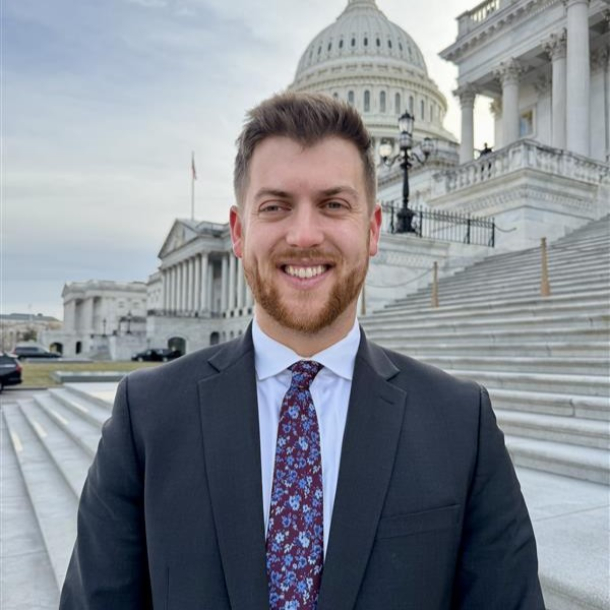NACo sends letter to Congressional leadership outlining county priorities for 2023 Farm Bill
Author

Owen Hart
Upcoming Events
Related News

Key Takeaways
On March 28, NACo sent a letter to Congressional leadership of the U.S. House and Senate Agriculture Committees calling for the inclusion of key county priorities in the 2023 Farm Bill. With the current legislation set to expire on September 30, 2023, Congress is working to draft a new, five-year Farm Bill, with congressional hearings already underway to determine public and private stakeholders’ priorities for the reauthorization. NACo’s letter can be viewed here.
The Farm Bill is an expansive piece of legislation establishing a broad range of federal policies, authorizing programs and regulations on agriculture, rural development, nutrition, conservation and public lands management, among others. Last passed as the Agriculture Improvement Act of 2018 (P.L. 115-334), the 2018 Farm Bill authorized $428.3 billion in funding on a five-year basis for a broad range of programs important to counties. Through loans, technical assistance and direct competitive grant programs, the law authorizes programs that assist county governments in delivering essential services to residents while investing in the long-term health and resilience of the communities they serve. For more information on the Farm Bill reauthorization process and how the Farm Bill impacts county governments, read NACo’s Primer for Counties: 2023 Farm Bill Reauthorization.
NACo’s letter lays out several recommendations for Congressional partners to consider, including:
- Adopting grants-based funding structures instead of direct and guaranteed loans, particularly for programs targeting rural infrastructure and community development.
- Providing at least $1 billion dollars in mandatory funding for a grants-based rural capacity-building program. Funding distributed through this program would invest in the expertise and capacity of rural counties to plan, implement, and measure the impact of locally-led community development strategies.
- Fully extending Good Neighbor Authority eligibility to counties to enhance the ability of the U.S. Forest Service (USFS) and Bureau of Land Management (BLM) to partner with counties on federal forest restoration and management projects.
- Improving farm safety net programs for new, beginning and underserved agricultural producers, including broader crop insurance coverage and improved technical assistance for small and mid-sized producers.
- Maintaining or increasing funding levels for Farm Bill conservation programs, such as the Regional Conservation Partnership Program (RCPP), Environmental Quality Incentive Program (EQIP), and Conservation Stewardship Program (CSP), that empower farmers and ranchers to voluntarily engage in projects that serve the needs of their communities.
- Ensuring Supplemental Nutrition Assistance Program (SNAP) benefit adequacy, especially for families with children, and create a more gradual phase-out from the SNAP program to ease the transition from benefits to income, especially for families.
- Reauthorizing programs supporting rural broadband deployment to continue investments in community-oriented connectivity, fostering economic growth and delivering enhanced educational, health care, and public safety benefits.
As Congress begins the process of drafting a new Farm Bill, NACo urges county leaders to call on their Members of Congress to fully fund the Farm Bill by passing a five-year reauthorization that addresses county priorities. Preserving the law’s programs is key to the strength and stability of the American economy and the continued resilience of urban and rural counties alike. NACo will continue to work with federal partners on the Farm Bill and other critical pieces of legislation.
Resource
Primer for Counties: 2026 Farm Bill Reauthorization

Related News

National Association of Counties Launches Initiative to Strengthen County Human Services Systems
The National Association of Counties (NACo) announces the launch of the Transforming Human Services Initiative, a new effort to help counties modernize benefits administration, integrate service delivery systems and strengthen county capacity to fulfill our responsibility as America’s safety net for children and families.

Congress seeking ‘common-sense solutions’ to unmet mental health needs
Rep. Andrea Salinas (D-Ore.): “Right now, it is too difficult to access providers … and get mental health care in a facility that is the right size and also the appropriate acuity level to meet patients’ needs.”

Federal-level child welfare priorities center on supporting foster youth, families
Child welfare experts outlined current priorities at the federal level, including better supporting foster care youth who age out of the system and recruiting more foster parents, at NACo’s Human Services and Education Policy Steering Committee meeting.